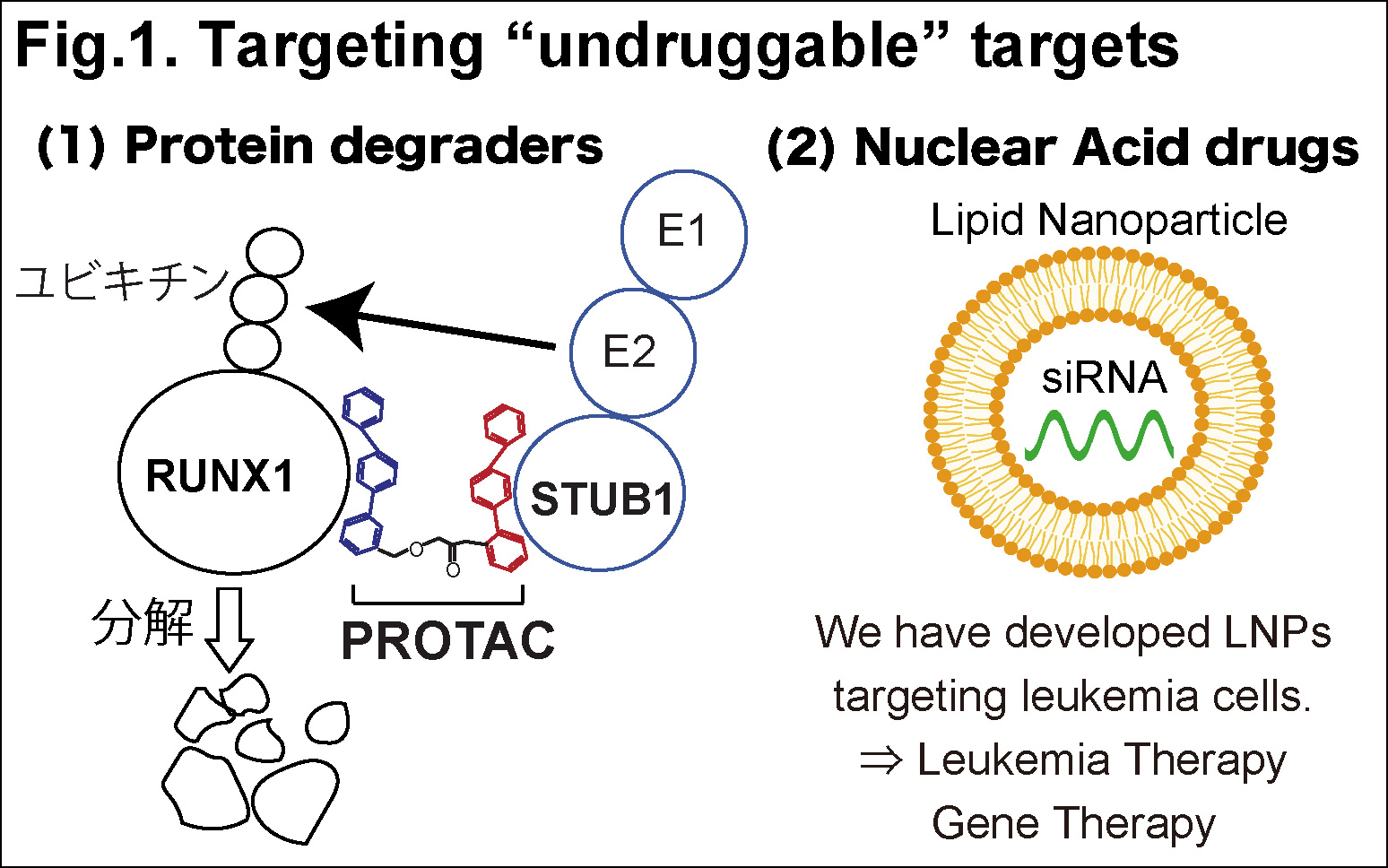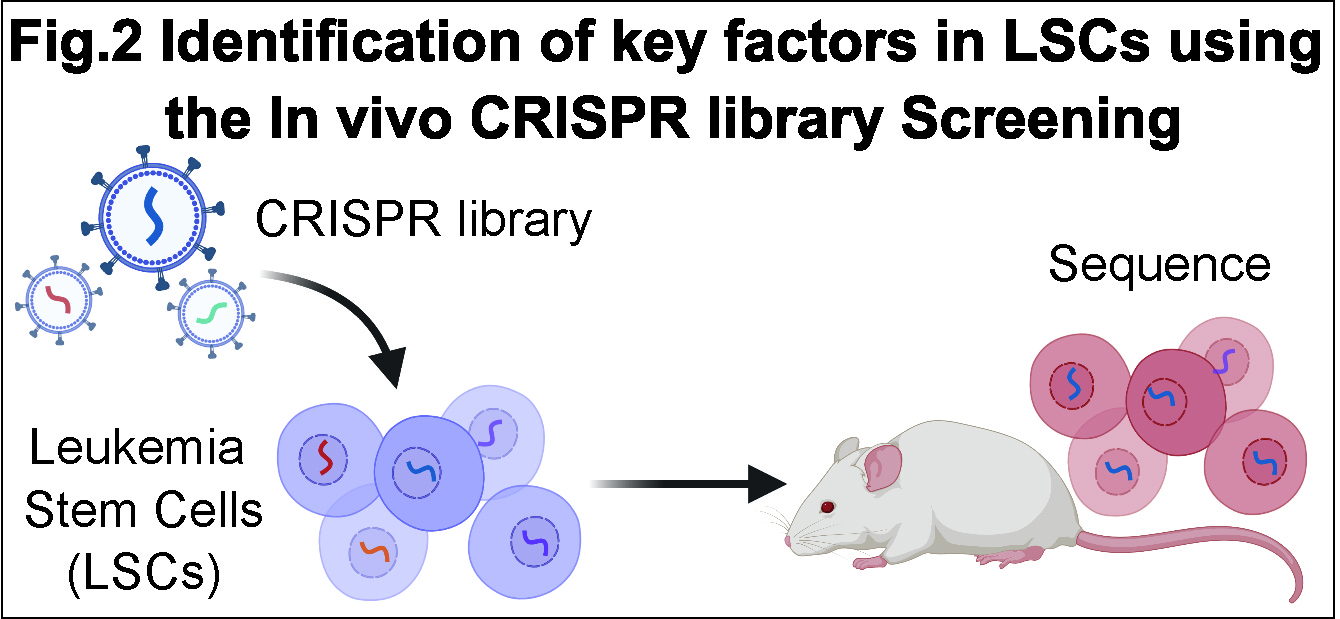研究内容
RESEARCHES
発表論文 Publications ▸ 研究紹介 Researches ▸ プロトコール Protocol ▸ コラム Column ▸
Laboratory of Molecular Oncology
Professor Susumu Goyama
Contact ▸ +81-3-5449-5782 goyama@ims.u-tokyo.ac.jp
+81-3-5449-5782
goyama@ims.u-tokyo.ac.jp
[Keywords] Hematopoietic neoplasms, Cancer stem cells, Molecular targeted therapy, Tumor immunity, long noncoding RNA
[Keywords]
Hematopoietic neoplasms, Cancer stem cells, Molecular targeted therapy, Tumor immunity, long noncoding RNA
Curing cancer
“Curing cancer” was a dream. Today, advances in technology make it no longer a dream: A cure for cancer has become possible, even probable. Our laboratory is interested in the molecular, cellular, and genetic basis of cancers, with a specific focus on hematopoietic neoplasms.
1. Targeting transcription factors using protein degraders and lipid nanoparticles
Transcription factors play pivotal roles in cancers, but have been considered “undruggable”. We are developing therapies targeting “undruggables” using the cutting-edge technologies (Fig.1).

1-1. Developing Protein degraders
The proteolysis-targeting chimeric technology have attracted considerable attention for targeting the undruggable proteins. We previously identified STUB1 as an E3 ubiquitin ligase to induce RUNX1 ubiquitination and degradation. Based on the data, we are currently developing protein degraders to promote the STUB1-induced RUNX1 degradation.
1-2. Developing nuclear acid medicine
Lipid nanoparticle (LNP) is a promising tool to achieve efficient delivery of nucleic acids into target cells. We have developed LNPs that can deliver RNAs efficiently into hematopoietic and leukemic cells. Using these LNPs, we are developing novel nuclear acid medicines targeting key transcription factors in leukemia cells.
2. Cancer Stem Cells and Tumor Immunity
To develop curative cancer therapies, we need to eradicate cancer stem cells, the key drivers of tumor progression, therapy resistance and relapse. Recently, we identified “immune escape” as an important mechanism of leukemia stem cells to survive under the treatment of the p53-activating drug. We are interested in how cancer stem cells resist and survive during chemotherapy, and how cancer stem cells evade from antitumor immunity. In vivo CRISPR library screening (Fig.2) will be a powerful tool to answer the questions.

3. Targeting lncRNAs for cancer therapy
Studies have revealed important and diverse roles of long noncoding RNAs (lncRNAs) in the development and progression of cancers. We recently found that paraspeckles, which is composed by lncRNA NEAT1 and its associated proteins, play important roles to maintain hematopoiesis. We have also established several experimental tools to analyze the functions of lncRNA in hematopoietic and leukemia cells. We are currently investigating the roles of lncRNAs in hematopoietic neoplasms using these experimental tools. We are also developing lncRNA-targeting drugs to treat cancers.
